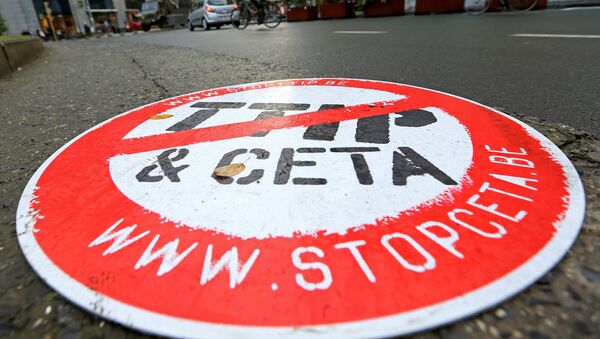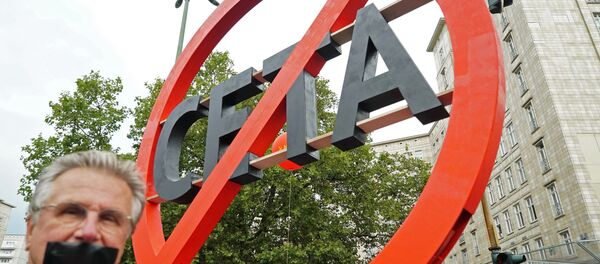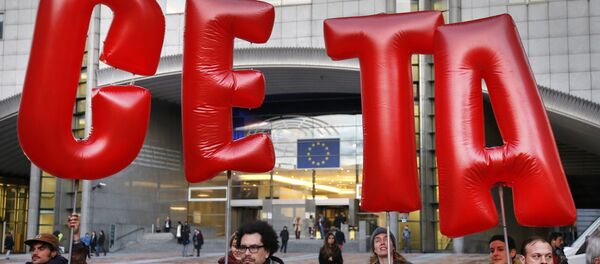"There is no proof whatsoever that CETA will provide any significant growth or a job boost. In fact, there is indication pointing in the opposite direction," Kenneth Haar told the Danish newspaper Arbejderen.
According to Jens Ladefogd, a specialist in international political economy at the University of Copenhagen, the Danish government is eager to manifest tokens of support to Brussels.
"There is no doubt that we have a government that is very pro-free trade and would like to have this agreement quickly put through, so they can send the signal to the EU and the other countries that Denmark throws its weight behind the EU's trade policy," Ladefogd told the Norwegian daily Klassekampen.
Denmark's recent record of public ballots has been in no way complimentary for the Danish government. In recent decades, Denmark has held three referendums that have all yielded negative decisions: on the Maastricht Treaty in 1992, the euro in 2000 and finally an opt-out on home and justice matters in 2015. Danish opt-outs from European Union policies are secured under the 1992 Edinburgh Agreement, after Danes notoriously rejected the Maastricht Treaty.
The Lars Løkke Rasmussen government, which is a minority coalition government embracing the Liberals, the Liberal Alliance and the Conservative People's Party, is therefore determined to take no risks and vote CETA through as quickly as possible before popular opposition and the resistance from public organizations builds up.
"A motion goes through much faster than a bill that is allotted three [legislative] reviews and should be submitted to external parties for consultation. A motion may be considered strictly within the government's domain and control," Dorte Sindbjerg Martinsen, a professor from the University of Copenhagen, told Arbejderen.
The controversial CETA deal, which aims to eliminate 98 percent of tariffs on exported goods and is expected to lead to a privatization of the public sector, was passed by the European parliament in mid-February, but has triggered negative reactions across Europe.
Never miss a story again — sign up to our Telegram channel and we'll keep you up to speed!




